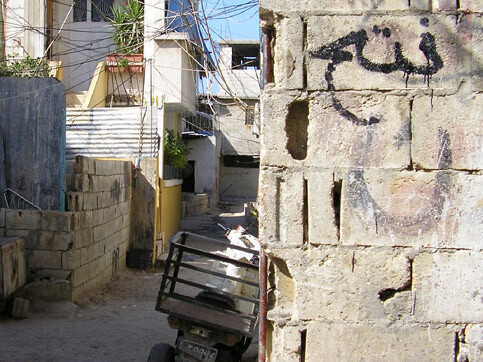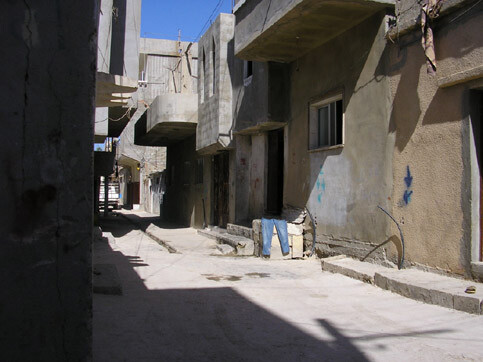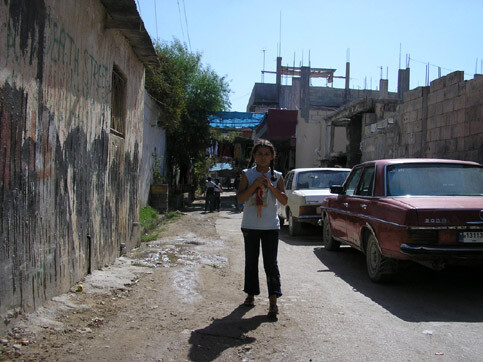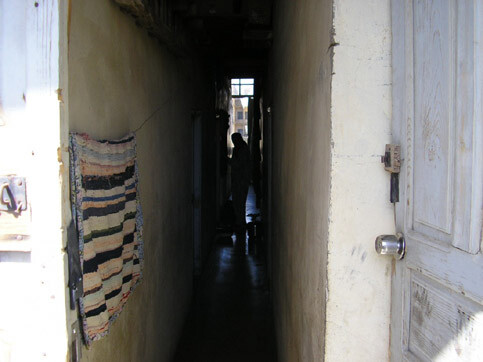The Electronic Intifada 28 October 2004

Palestinian refugees face severe restrictions in their access to work and to opportunities to gain their living by work. (Arjan El Fassed)
Ein el-Hilweh is the largest Palestine refugee camp in Lebanon, both in area size and population. The camp is situated near the town of Saida 45 km south of Beirut. It was originally established by the International Committee of the Red Cross in 1948 when tents were provided for the Palestine refugees arriving from northern Palestine.

Residents of Ein Hilweh have protested the signing of the unofficial Geneva Initiative as a betrayal of their right of return under UN resolutions. (Arjan El Fassed)
There are many displaced Palestine refugee families in this camp who were forced to flee from Tripoli and other areas of the country during the war in Lebanon. Ein el-Hilweh has been frequently assaulted, particularly between 1982 and 1991, resulting in a high number of casualties and near total destruction of the camp.

Lebanese authorities continued to restrict construction in certain refugee camps, and entry of construction materials continued to be subject to military approval, which was not always granted. (Arjan El Fassed)
One month ago, two Palestinians were killed in a clash between two factions in camp. The violence erupted between Fatah and Jund al-Sham. The gun battle raged for several hours, using automatic rifles, prompting residents to seek shelter. The Lebanese army cordoned off the camp banning any gunmen from walking out. In the meantime, camp officials held an emergency meeting to settle the incident.

The main problems faced by Palestinian refugees are of a social and economic nature, including a high rate of unemployment existing among professionals, including doctors, teachers and engineers and the decreasing assistance they receive. These problems are accentuated by laws and policies that discriminate against Palestinians refugees in Lebanon. (Arjan El Fassed)
Ein el-Hilweh’s 60,000 inhabitants mainly work as daily-paid labourers on construction sites and in orchards, in embroidery workshops and as cleaners. There is quite a high school drop-out rate as students are often forced to leave school in order to support their families.

Discrimination against Palestinians with regards to the rights to own and inherit property, when taken in conjunction with the inadequate housing conditions in the refugee camps, creates a situation whereby Palestinian refugees are discriminated against in their enjoyment of the right to adequate housing. (Arjan El Fassed)
Ain al-Hilweh, the “capital of the Palestinian Diaspora,” with over 60,000 refugees crammed into a 1.25 square kilometer piece of land is surrounded on all sides by Lebanese army checkpoints. The number of Palestine refugees registered with UNRWA in Lebanon is currently 394,532, or an estimated 10 per cent of the population of Lebanon.
Related Links